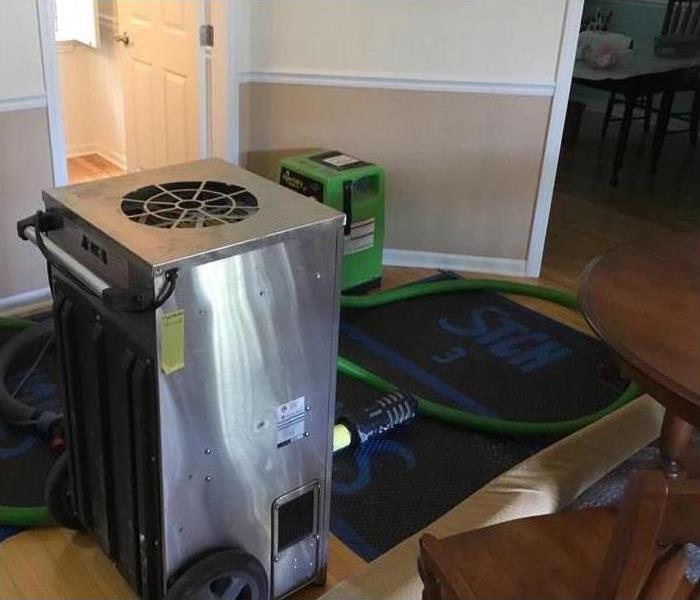Are Broken Pipes Covered by Insurance?
11/30/2020 (Permalink)
SERVPRO Is Here To Help!
If a pipe suddenly breaks in your home, causing a flood, there’s an excellent chance that your insurance will cover the resulting damage. However, you have a duty to act quickly, and if you ignore routine maintenance or an ongoing issue, your claim can be denied.
What Is Excluded by Insurance?
Insurance coverage is designed to handle accidents beyond normal use. It’s not meant to protect homeowners who are negligent in maintenance and those who ignore obvious problems.
Common exclusions from coverage include:
- Poor maintenance
- Ignoring a known issue
- Water damage from a flood outside the home
- Earthquakes and sinkholes
- Normal wear and tear
For instance, if there’s a leak and you don’t fix broken pipe or connections, it won’t be covered if the insurance company finds out. Also, while earthquakes aren’t covered, the damage from other earthquake-caused problems, such as fires, may be fully covered.
What About a Slow Leak?
Gradual damage can be a tricky issue. Generally, damage incurred over a long period is not covered, but the wording on your policy makes a huge difference. If the gradual water damage was caused by something the homeowner knew about – or should have known about – it won’t be covered.
Another factor is the nature of the damage. Was it caused by a sudden event? If an accident happens that’s hidden for a reasonable period of time before being discovered, and that accident created a situation causing gradual damage, it may be covered.
What About Black Mold Damage?
This is an example of slow damage. Whether it’s covered by your policy will depend on the policy wording and cause. Many homeowner’s policies don’t include mold at all, so it’s really hit or miss with mold. A flood is also always excluded from standard insurance coverage.
What Should You Do if You Discover a Slow Leak?
You need to immediately shut off the water to the area and call your top local water damage restoration company to perform an initial inspection. They can mitigate further damage, help you with insurance claims and begin the repair process.





 24/7 Emergency Service
24/7 Emergency Service
